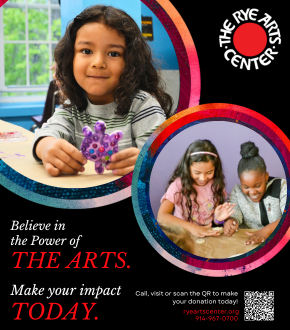By Katrina Smith
One winter when I was
a small child, I needed a new jacket. Since the jacket I wanted was too expensive, my father only paid for half of it and I had to work around the house and earn the money to pay for the rest. Some in my family have made fun of my dad for only buying me half of a winter coat when I was just a kid but I actually learned some
very important lessons. I learned the value of money and how to save for things that I wanted. Most importantly, I learned that the best gifts are usually not the expensive ones.
My dad saw spending quality time with his kids as a better gift than an expensive new toy that would outgrow its wonder relatively quickly. He took us hiking, biking, and on cross-country trips in the summer to visit national parks and battle fields. The material gifts he did give were usually handmade and sometimes the gift was making something together. Dad very rarely forked over money that was not essential but he made opportunities for us to earn money. We were busy washing the cars together nearly every weekend and I remember earning a penny for every stick I picked up when cleaning the yard. We mowed the lawns and one summer I even painted the house!
Sometimes the gift is in the learning and in the time spent together. This holiday season, consider saving your money and giving the gift of togetherness. With your significant other, spend money on travel to a new place or on experiences that you might remember for a lifetime. Take a class or workshop with your kids. Instead of buying your colleagues something they are just going to regift, agree to go out to lunch and spend some time together in a more informal setting. Consider making the gifts you give away. Even if you are not an artist or a wiz at Pinterest, bake some bread or set up a music playlist. It really is the thought that counts!
Think about what you are inadvertently teaching your kids when you give lots of expensive gifts around the holidays.
Is money a means to achieving happiness? Does everything a child wants magically appear just because they want it? Are more expensive things better in the long run? Does “more” really mean “better” when thinking about holiday gifts? Some families have changed the way they approach gift giving by spending money on one big trip together. Another possibility is to make a donation. This can be a great option for people who already seem to have it all. Make a donation to a charity in some way related to the person’s interests. You can also do a community service project together. Some children have done fund raisers for charity as a celebration of their birthday instead of receiving gifts. The season of giving does not just have to be about material possessions. There is actually opportunity for some deeper lessons.
How can your family or group of friends be creative or even resourceful in their generosity? One idea might be to decide as a group of friends or family to give gifts that cost nothing. Look through possessions that you already have to find a gift. This can be fun and it doesn’t seem so tacky if everyone is doing it. I know some colleagues that did a gift giving game where they all had to find something in their desk and wrap it up as a grab bag gift. Some of the gifts were funny and others were creative.
The dictionary says that a gift is a thing given willingly to someone without payment. Think of things to gift that you cannot buy like offering up your services as a babysitter, cooking a meal, or giving a ride. Write a heartfelt note to someone, telling them how you really feel about them. Sometimes great opportunities to be generous pop up and we need to take advantage of them. People often do not remember exactly what someone said or what gift they gave but what they do remember is how someone made them feel. Take the opportunity this holiday season to make your friends and family feel valued and consider doing it in a different way.
Durante un invierno, cuando era niña, necesitaba un abrigo nuevo.
El abrigo que yo quería era muy caro, entonces mi padre solo pagó la mitad del mismo y yo necesité “trabajar” en mi casa haciendo quehaceres para recibir dinero y pagar el resto. Algunas personas en mi familia se rieron de mi padre porque él solo pagó la mitad del abrigo y yo siendo una niña, aprendí algo muy importante. Aprendí el valor del dinero, cómo ahorrarlo y sobre todo aprendí que los mejores regalos normalmente no son los regalos más caros.
Mi padre sabía que pasar tiempo de calidad con sus hijos era mejor regalo que un juguete nuevo que deja de ser interesante en una semana. En los veranos, subíamos montañas juntos, montábamos en bicicleta e íbamos a parques nacionales y sitios donde hubo batallas. Normalmente, los regalos que nos daba eran realizados por él y a veces el regalo era hacer algo juntos. Casi nunca nos daba dinero que no necesitábamos, pero creó oportunidades para que pudiéramos ganarlo. Casi todos los fines de semana limpiábamos coches y recuerdo haber recibido un centavo por cada palo que recogí del jardín. Cortábamos el césped ¡y un verano, inclusive ayudé a pintar nuestra casa!
A veces, el regalo está en lo que aprende y el tiempo que pasa junto a sus seres queridos. Este invierno, piense en ahorrar su dinero y dar el regalo de estar juntos. Con su pareja, gaste dinero en una vacación o experiencia que sabe, va a recordar por toda su vida. Tome una clase con sus hijos. En lugar de comprar a sus colegas algo que no usarán, almuerce con ellos y pase tiempo con ellos en un lugar más informal. Piense en hacer Ud. mismo los regalos que dé a otras personas. No importa si no es un artista o no sabe cómo usar Pinterest, simplemente cocine algo en el horno o cree una colección de canciones. ¡Es la idea la que cuenta!
Piense que está enseñando a sus hijos cuando da muchos regalos caros durante la temporada de las fiestas.
¿Tener dinero es una forma de estar contento? ¿Todo lo que un niño desea aparece solo porque lo quiere? ¿Las cosas más caras son mejores a largo tiempo? ¿Más significa mejor cuando piensas en regalos? Algunas familias están cambiando la manera de dar regalos y ahora optan por una vacación todos juntos. Otra opción es hacer una donación. Esto es una idea muy buena para aplicar con las personas que parecen tenerlo todo. Halle un centro de donación o un centro de caridad que se relacione a los gustos o intereses de esta persona. También puede hacer una obra de caridad en su comunidad. Algunos niños han recaudado fondos para la caridad como una celebración de su cumpleaños en lugar de recibir regalos. En realidad, hay muchas oportunidades para lecciones de vida.
¿Cómo su familia o amigos pueden ser creativos en su generosidad? Una idea es decidir dar regalos que no cuesten nada. Busque en las cosas que ya tiene para encontrar un regalo. Esto puede ser divertido y no parece tan mala idea si todas las personas lo hacen. Sé de algunos colegas que jugaron un juego donde toda la gente tiene que encontrar algo en su escritorio para dar como un presente. Algunos de los regalos fueron cómicos y otros creativos.
El diccionario dice que un regalo es algo que alguien da a otra persona sin recibir dinero y porque lo quieren dar. Piense en cosas que no se compran. Piense en cosas que Ud. puede ofrecer como ser cuidar de niños. Cocine algo u ofrézcase a transportar a alguien a un lugar. Escriba una nota a una persona diciéndole cómo se siente. A veces las oportunidades para ser generoso aparecen y no hacemos nada. Las personas normalmente no recuerdan lo que alguien dijo o qué regalo recibieron, pero recuerdan como sienten. Tome la oportunidad durante las fiestas para hacer que su familia y amigos se sientan valorados y considere hacerlo de una manera diferente.





